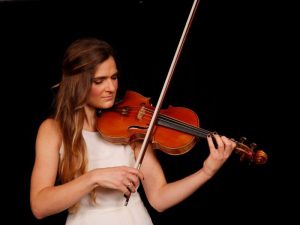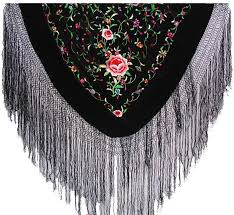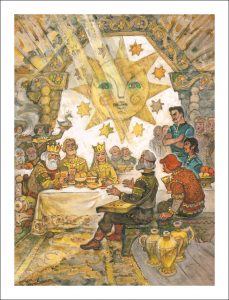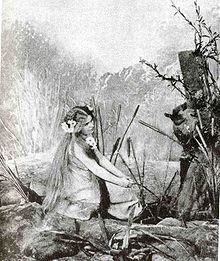- Largo – Allegro
- Andante
- Allegretto

- Allegro molto ed appassionato
- Allegretto espressivo alla Romanza
- Allegro animato

Siete canciones populares, (selections) by Manuel de Falla (1876-1946)
“Cancion”
“Nana”
“Jota”
“Aranjuez, Ma Pensee” from Concierto de Aranjuez, by Joaquin Rodrigo (1901-1999), Text by Victoria Kamhi
“Junto al Generalife” by Joaquin Rodrigo (1901-1999)
Bachianas Brasileiras #5 (Aria) by Heitor Villa-Lobos (1887-1959)
Diane Althaus, soprano and Lucas Victor (guest artist), guitar
Valses Poeticos by Enrique Granados (1867-1916)
Suite Espagnola, Asturias (Leyenda) by Isaac Albéniz (1860-1909)
Suite Espagnola, Cuba (Nocturno)
Karin McCullough, piano
Antonida’s Romance from A life for the Tsar by by Mikhail Glinka (1804-1857)
Meg Daly, soprano as Antonida

“Dream divine, enchanting sight!” from Ruslan and Lyudmila by Mikhail Glinka
Janene Nelson, mezzo soprano as Ratmir
“Days of love and fond affection” from Rusalka by Alexander Sergeyevich Dargomyzhsky (1813-1869)
Dawn Padula, mezzo soprano as the Princess
Tamara’s Romance from The Demon by Anton Rubinstein (1829-1894)
Regina Thomas, soprano as Tamara
“Forces of prophecy” from Khovanschina by Modest Musorgsky (1839-1889)
Dawn Padula, mezzo soprano as Marfa
“Ah! I weep, I weep bitterly” (Yaroslavna’s Lament) from Prince Igor by Alexander Borodin (1833-1887)
Regina Thomas, soprano as Yaroslavna
“Says the Rain Cloud to the the thunder one day” from The Snow Maiden by Nicolay Rimsky-Korsakov (1844-1908)
Janene Nelson, mezzo soprano as Lel
Hymn to the Sun from The Golden Cockerel by Nikolay Rimsky-Korsakov
Meg Daly, soprano as the Queen of Shemakha
“Ah, I am worn out with grief” from The Queen of Spades by Pyotr Ilyich Tchaikovsky (1840-1893)
Regina Thomas, soprano as Lisa
“Have you not heard?” (Act I, Scene I quartet) from Eugene Onegin by Pyotr Ilyich Tchoikovsky
Antonida’s Romance from A life for the Tsar by by Mikhail Glinka (1804-1857)
Meg Daly, soprano as Antonida

“Dream divine, enchanting sight!” from Ruslan and Lyudmila by Mikhail Glinka
Janene Nelson, mezzo soprano as Ratmir
“Days of love and fond affection” from Rusalka by Alexander Sergeyevich Dargomyzhsky (1813-1869)
Dawn Padula, mezzo soprano as the Princess
Tamara’s Romance from The Demon by Anton Rubinstein (1829-1894)
Regina Thomas, soprano as Tamara
“Forces of prophecy” from Khovanschina by Modest Musorgsky (1839-1889)
Dawn Padula, mezzo soprano as Marfa
“Ah! I weep, I weep bitterly” (Yaroslavna’s Lament) from Prince Igor by Alexander Borodin (1833-1887)
Regina Thomas, soprano as Yaroslavna
“Says the Rain Cloud to the the thunder one day” from The Snow Maiden by Nicolay Rimsky-Korsakov (1844-1908)
Janene Nelson, mezzo soprano as Lel
Hymn to the Sun from The Golden Cockerel by Nikolay Rimsky-Korsakov
Meg Daly, soprano as the Queen of Shemakha
“Ah, I am worn out with grief” from The Queen of Spades by Pyotr Ilyich Tchaikovsky (1840-1893)
Regina Thomas, soprano as Lisa
“Have you not heard?” (Act I, Scene I quartet) from Eugene Onegin by Pyotr Ilyich Tchoikovsky
Sonetto No. 123 del Petrarca by Franz Liszt (1811 – 1886)
Valses nobles et sentimentales by Maurice Ravel (1875-1937)
Etude-Tableau in G minor, Op. 33, No. 8 by Sergei Rachmaninoff (1873 – 1943)
Lilacs, Op. 21, No.5
Joyce Gibb, piano

Die Forelle (The trout) by Franz Schubert (1797-1828)
Er ist gekommen in Sturm und Regen (He came in storm and rain) by Clara Schumann (1819-1896)
Die Lorelei (The Lorelei) by Franz Liszt (1811-1886)
Il pleure dans mon coeur (There is weeping in my heart) by Claude Debussy (1862-1918)
Spring Waters by Sergei Rachmaninoff (1873-1941)
“Rusalka’s song to the moon” from Rusalka by Antonín Dvořák (1841-1904)
Amber Rose Johnson, soprano and Asta Vaicekonis, piano